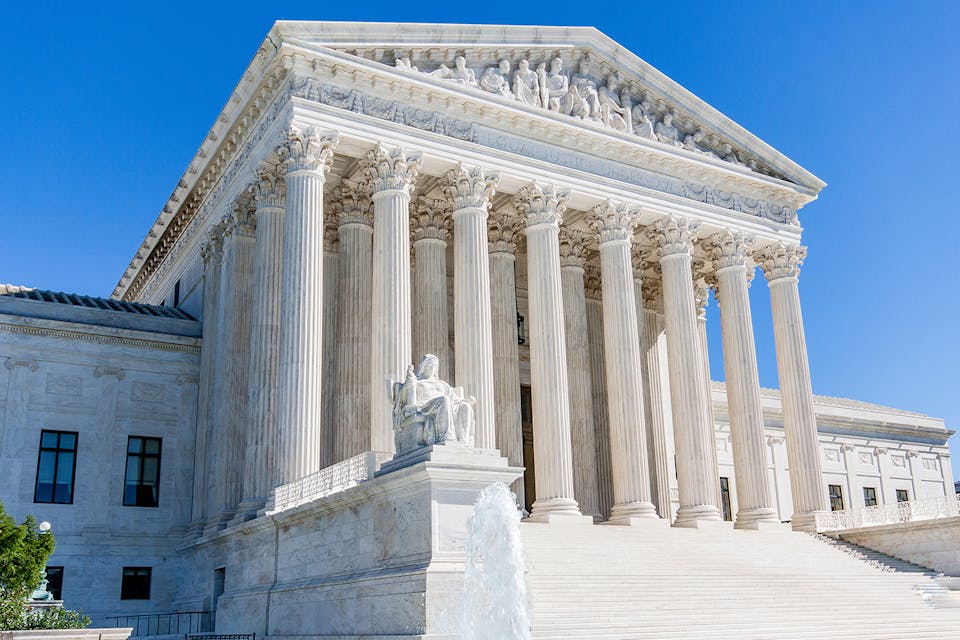
September 23, 2020
The Supreme Court Inches Toward Religious Freedom
In its most recent term, the court handed down several decisions that protect First Amendment rights. What comes next?
In its next term, set to begin on October 5, the Supreme Court will make decisions that could significantly impact the constitutional right of Americans to exercise their many religious faiths. Whether and how much they do will depend in part on who succeeds the late Justice Ruth Bader Ginsburg. If the nominee is dedicated to applying the original public meaning of the Constitution, she can help protect religious practice in ways that significantly benefit the American Jewish community. Given Ginsburg’s role as a dissenter in most of the court’s recent religious-liberty decisions—which, as we’ll shortly see, have been on the whole protective of the rights of religious Americans—her successor is unlikely to change the overall result of those future decisions. But, at least going by many of the names currently being discussed in the press, that replacement is likely to reinforce the present majority and help it offer more robust and conclusive decisions, perhaps even landmark decisions of a kind not seen in recent years.
In the near future, the court could issue important decisions on matters as varied as reestablishing meaningful employment protections for Sabbath-observant Jews under Title VII of the 1964 Civil Rights Act, restoring Americans’ ability to challenge the constitutionality of generally applicable laws that burden religious exercise, and securing the freedom of college students to express their faith publicly on campus. For these reasons, and others we’ll get to, a Supreme Court nominee who is likely to interpret the law in a manner that protects religious liberty will be welcome to American Jews.
Religious liberty for all Americans serves the particular interest of Jewish Americans too, and that means that we should refute the pernicious falsehood that the issues together known as religious liberty primarily favor Christians at the expense of religious minorities. Opponents of religious liberty succeed in promulgating this myth because, while many religious-liberty cases—like litigation regarding Jewish inmates’ access to kosher food—concern religious minorities, it is Christians who are involved in some of the highest-profile and most controversial cases. But looking at those cases alone will give a misguided impression of the court’s purview and its rulings. The truth is that religious minorities are actually overrepresented in religious-liberty litigation, and most cases do not involve controversial social issues but rather rights important to the meaning of the country and to Jews in particular.